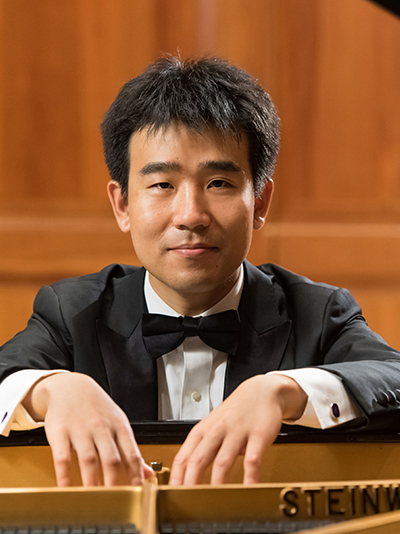‘How Will You Ever Afford to...?’
Smith Quarterly
And other questions an education professor anticipates hearing less of now that loans will no longer deter students from pursuing a career like teaching.

Published April 1, 2022
My students and I study how education impacts individuals by advancing or constraining opportunities. We explore the promise of education as a lever to promote mobility and community change and critically analyze how schools can reproduce structural inequalities that, too often, hold so many people back.
Each semester, my students discuss Harvard economist Raj Chetty’s study that found capable and prepared kindergarten teachers materially impact their students’ lifetime earnings and future quality of life. Chetty and his fellow researchers estimate that for a class of 20 students an above-average kindergarten teacher generates about $320,000 more in lifetime earnings than a lesser teacher.
The bottom line: Teachers make a difference. Chetty’s findings open space for students to tell stories of the importance of memorable teachers in their own lives, although, as one student said, “I don’t need that study to tell me how teachers helped me get to Smith.” It also provokes a discussion about pursuing teaching or a career in education. Those discussions typically encompass a complex tension. They speak of teaching as an honorable way to use what they have learned at Smith in service to society. They also describe how they worry about the economic and practical implications.
Family members and fellow students often raise concerns: Is teaching what you really want to do? Do you know how much teachers make? And, a question that I will hear less of now that Smith has eliminated loans from a Smith student’s financial calculus, “How will you ever afford to pay back your student loans?”
Loans deter college students from pursuing teaching and, for those who teach, loans create financial hardship for years. According to a National Education Association report, nearly half of educators (and 65% of young educators) have taken out a loan to fund their education, with the average amount standing at $55,800. To solve the problems facing our country and communities, we need Smith graduates at the front of classrooms and in educational leadership roles. Smithies bring a capacity for critical analysis, an ethic of resourcefulness, and the ability to work collaboratively and creatively. Henceforth, our students can decide to undertake teaching—or anything else of their choosing!—without the burden of staggering debt.
Out: Shame, Stigma In: Passion, Potential
Faculty members’ quick takes on the promise of life without student loans.
 “Smith’s initiative to eliminate loans affords student makers resources for Praxis internship work and creates pathways toward graduate and film school programs, film festivals, and artist fellowships. Historically, application fees have created barriers for students from low-income backgrounds. With support like this, I hope students feel inspired to pursue opportunities that once seemed unattainable.”
“Smith’s initiative to eliminate loans affords student makers resources for Praxis internship work and creates pathways toward graduate and film school programs, film festivals, and artist fellowships. Historically, application fees have created barriers for students from low-income backgrounds. With support like this, I hope students feel inspired to pursue opportunities that once seemed unattainable.”
ANAIIS CISCO, assistant professor of film and media studies
 “I hope grants mean students will explore what excites them. They won’t be in massive debt, so after Smith they could follow the passions they discover here. When I graduated, I believed I could do anything I put my mind to. I’d learned how to learn in multiple modes. My theatre major was critical for this. I can stage-manage and reverse-engineer anything I want to accomplish. I was a math textbook editor. I started a theater company in my 20s. I learned German in my 30s and translated [German writer] Michael Ende’s plays. I decided to write science fiction novels in my 40s. A Smith liberal arts education is a treasure. Grants mean we can share that treasure.”
“I hope grants mean students will explore what excites them. They won’t be in massive debt, so after Smith they could follow the passions they discover here. When I graduated, I believed I could do anything I put my mind to. I’d learned how to learn in multiple modes. My theatre major was critical for this. I can stage-manage and reverse-engineer anything I want to accomplish. I was a math textbook editor. I started a theater company in my 20s. I learned German in my 30s and translated [German writer] Michael Ende’s plays. I decided to write science fiction novels in my 40s. A Smith liberal arts education is a treasure. Grants mean we can share that treasure.”
ANDREA HAIRSTON ’74, Louise Wolff Kahn Professor of Theatre and professor of Africana studies
 “When I moved to the U.S. from Yantai, China, to pursue my musical dream and career, I was very fortunate to receive generous scholarships from my school [Juilliard] so I could devote myself to my studies without significant financial burdens. Now, as an educator, I am overjoyed to witness Smith’s move to replace student loans with grants, enabling generations of students from diverse backgrounds to follow their passions and realize their fullest potentials.”
“When I moved to the U.S. from Yantai, China, to pursue my musical dream and career, I was very fortunate to receive generous scholarships from my school [Juilliard] so I could devote myself to my studies without significant financial burdens. Now, as an educator, I am overjoyed to witness Smith’s move to replace student loans with grants, enabling generations of students from diverse backgrounds to follow their passions and realize their fullest potentials.”
JIAYAN SUN, assistant professor of music
 “This initiative begins to level the playing field for students after graduation. It’s an investment in their future lives. Hopefully, it propels more students into the arts, creative careers, and, in the long term, might shift students’ abilities to follow an artistic passion and become an entrepreneur.”
“This initiative begins to level the playing field for students after graduation. It’s an investment in their future lives. Hopefully, it propels more students into the arts, creative careers, and, in the long term, might shift students’ abilities to follow an artistic passion and become an entrepreneur.”
NAIMA GREEN, Harnish Visiting Artist
IMAGINE WHAT’S POSSIBLE
What does it mean for a new generation of Smithies to graduate free from crushing student debt?
Read on to see.

FROM THE PRESIDENT
A Bold Investment in Financial Aid
How did the decision to eliminate loans come to be? President McCartney offers a behind-the-scenes look at one of the most consequential decisions of her tenure.

FINANCIAL HEALTH
‘A More Appealing Education for All’
How might the new policy impact student decisions before and after college? An economics professor weighs in.
EQUITY OF OPPORTUNITY
‘Smith Is Decreasing Barriers to Entry’
If education has the potential to be transformational, shouldn’t it be accessible to all? A sociologist says yes.
This story appears in the Spring 2022 issue of the Smith Alumnae Quarterly.
A More Flexible Future
The new policy will allow students to focus on the present and give them more options after graduation.
Mariam Ahmed ’24
Smith’s decision will reduce the financial stress that college has on families and students. It will increase the comfort and support students feel when studying at Smith. It came at a perfect time because students affected by the COVID-19 pandemic are able to afford their Smith education.
The initiative will allow me to take more volunteer opportunities during the school year. Instead of looking for ways to pay for Smith, I will be volunteering in the local food bank and hospital. The decision will also allow me to start saving for my MCAT exams, medical school applications, and medical school.
Prospective students will be able to study at a prestigious college without the cost burdens. Smith has amazing academic programs, the best alumnae network, and a great environment. The removal of loans will attract students from all socioeconomic statuses.
Students have been asking for loan forgiveness programs and grants for a long time. Smith’s decision is a big step toward an equitable education that I hope to see other colleges take.
Photograph by Jeff Baker
Illustration by Fernando Cobelo

